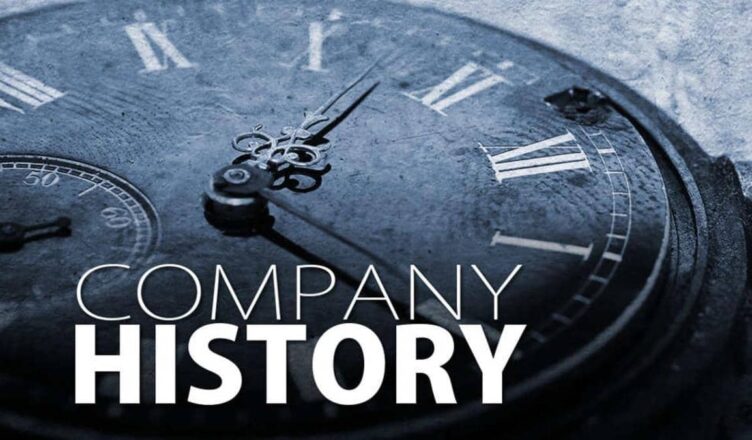Whether you’re a business professional, historian, or genealogist, tracing your company’s past can be an exciting and rewarding endeavour. But where do you start? It turns out that genealogy is an invaluable resource for researching company history. Let’s take a look at why this type of research is so powerful and how it can help you uncover the stories of your organisation.
Genealogy and Family Trees
Genealogy is essentially a family tree—it traces the ancestry of a particular individual or family over generations. This type of research has been around for centuries; however, in recent years, it has become increasingly popular as more resources become available online. With genealogy, you can trace the historical development of an individual or family by looking at birth records, marriage certificates, death certificates, census data, immigration documents, military records, and other sources of information.
Why It’s Important to Research Company History
-
Learn from the Past
When you take the time to research your company’s history, you will be able to identify patterns in sales, customer behaviour, marketing tactics, and more that can provide valuable insights. This information can then be used to inform decisions about how best to move forward with your business and navigate any potential obstacles that may arise. Knowing what worked well in the past—and what didn’t—can give you an edge over competitors who don’t take the time to do their own research.
-
Understand Your Core Values
Researching your company’s history also provides insight into its core values. What are the guiding principles that have enabled it to succeed? Are those values still relevant today? By understanding the core values that have shaped your business over time, you will be better equipped to make decisions about where it should go next. You may even find that some of those original values are still relevant and should be re-emphasized in order to continue driving success in the future.
-
Inspire Your Team
Finally, taking the time to research your company’s history is a great way to inspire team members and motivate them towards achieving success in their roles. Knowing how far your business has come—and being reminded of all its successes along the way—can help create strong bonds between employees and foster collaboration as everyone works together towards achieving common goals. It can also be a great source of pride for everyone involved, as they work hard each day knowing their efforts are contributing to creating something truly meaningful and lasting for generations to come!
Benefits of Researching Company History
1) Gaining a Competitive Advantage:
Examining the past can help you identify what has made your company successful as well as what has hindered it from reaching its full potential. This knowledge can help you develop strategies for improving operations and gaining an edge over competitors. By understanding where your company has come from, you can come up with creative solutions for current challenges and make sure your business remains ahead of the curve.
2) Enhancing Customer Relationships:
Knowing your company’s past will help you build stronger relationships with customers. For example, if your business was founded by a pioneering entrepreneur or innovator who overcame great odds to achieve success, this story could be used to inspire current customers and create loyalty for the brand. People are far more likely to trust companies with rich histories than those with no background information or stories to tell.
3) Uncovering New Opportunities:
Your research into a business’s past may reveal new opportunities that had previously gone unnoticed or unexplored. Historical documents may hold clues that could lead to new products or services that would appeal to customers or even entirely different markets that could open up new avenues for growth. Additionally, researching company milestones such as expansions or acquisitions can help inform decisions about future investments and partnerships.
How do I choose a professional genealogist?
-
Experience and Specialty Areas
When it comes to choosing a professional genealogist, experience is key. Look for someone who has worked in the field for many years. You should also look at what kinds of speciality areas they specialise in. For example, some genealogists focus on specific regions or time periods, while others may have expertise in researching certain ethnic backgrounds or minorities. Knowing what type of work they specialise in will help you make sure they are the right fit for your project.
-
References and Reviews
You should also take the time to ask for references from any potential genealogists you are considering working with. Ask them for previous clients’ names and contact information so that you can get an idea of their work ethic and quality of service. You should also check online reviews before making a final decision; this will give you an idea of what other people think about their services and if they’ve had any issues with them in the past.
-
Fees
Finally, make sure that you discuss fees upfront before agreeing to hire anyone as a professional genealogist. Fees will vary depending on what type of research needs to be done, how long it will take, and other factors such as travel expenses or copy costs, if applicable. Make sure that everything is clearly outlined before signing any contracts so there are no misunderstandings down the line.
Conclusion
Genealogy is an incredibly powerful tool when it comes to researching company history. By digging into records like birth certificates and census data, you can gain valuable insight into where your organisation came from and how it evolved over time. Not only does this help strengthen existing relationships with customers, but it also serves as inspiration for those who are part of the organisation today—both employees and customers alike! So if you’re looking to learn more about your business’s past, start exploring genealogy today!

